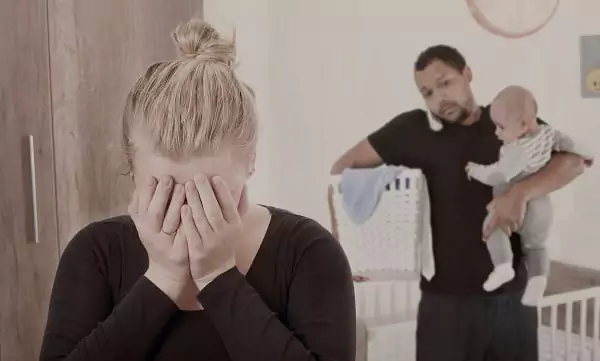Considering Postpardum illness in Sentencing

An Illinois law that took effect the summer of 2018 addresses women who suffer from severe postpartum illness and their legal culpability for criminal acts. The unprecedented act refers explicitly to postpartum depression or psychosis as a potential mitigating factor for judges to considering during the sentencing phase of a criminal case.
What is Postpartum Depression?
Postpartum depression is a mood disorder that can affect woman after childbirth. Women with postpartum depression experience extreme sadness, exhaustion, and sometimes anxiety. Postpartum depression is believed to be caused by a number of different factors including the lack of sleep that comes with caring for a baby and a sudden drop in a woman’s hormone level after childbirth. Postpartum depression feelings last longer and are more intense than the “baby blues.” About 1 in 9 women experience postpartum depression.
What is Postpartum Psychosis?
Postpartum psychosis is a rare but very serious condition where women can lose touch with reality, creating an unsafe environment for the woman and her child. It occurs in .1-.2% of pregnancies. Women with postpartum psychosis experience paranoid delusions and rapid mood swings. They can also experience confusion and sometimes thoughts about harming their baby. Andrea Yates drowned her five children during a state of postpartum psychosis in 2001. Women with postpartum psychosis should receive immediate psychiatric treatment but sometimes fail to seek treatment on their own.
Post-conviction Relief
The law allows women who were convicted of a felony, but who did not have evidence of their postpartum mental illness considered during trial or at their sentencing hearing, apply for a post-conviction sentencing reduction. The idea for the law was brought to Illinois State Representative Linda Chapa LaVia, by Bill Ryan, retired Assistant Director of the Illinois Department of Family and Child Services. While visiting the Lincoln Correctional Center, Mr. Ryan encountered 20-30 women who were incarcerated for crimes they committed while suffering from postpartum illness. The law will allow these women to have a new sentencing hearing wherein evidence of their postpartum depression or postpartum psychosis will be taken into account as a mitigating factor.
This law provides hope for women with these severe illnesses and the possibility that they will receive treatment rather than punishment for their conditions.
Contact an Experienced Criminal Defense Attorney
If you or a loved one suffers from a postpartum illness and has been convicted of or arrested for a crime, you need an experienced criminal defense attorney on your side. Elizabeth Kelley specializes in representing individuals with mental illnesses and intellectual disabilities. To schedule a consultation call (509) 991-7058.


